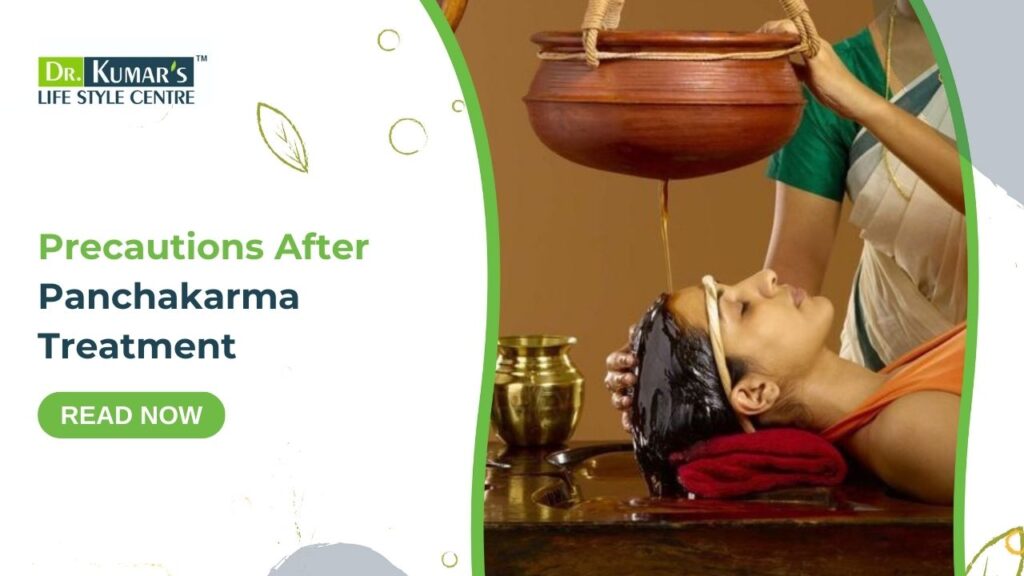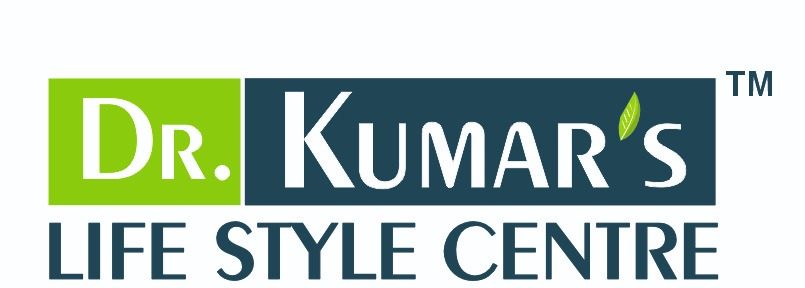Precautions After Panchakarma Treatment
- Dr Kumar

Panchakarma, a highly effective and ancient detoxification process, is an integral part of Ayurvedic therapy. After undergoing a panchakarma treatment, it is essential to follow specific guidelines to ensure that the body fully benefits from the therapy. Panchakarma therapy purifies the body and restores balance to the mind and spirit, but the post-treatment phase is critical for maintaining these benefits.
This blog will explore the necessary precautions after Panchakarma and why they are important. By following these tips, you can enhance the benefits of Panchakarma and ensure a smooth transition back to your daily routine.
Why Are Precautions After Panchakarma Necessary?
During panchakarma therapy, the body undergoes a significant detoxification process, which involves flushing out toxins and balancing the internal systems. This leaves the body in a sensitive and fragile state, where improper lifestyle choices can quickly disrupt the newly achieved balance. Failing to follow the proper precautions can reverse the effects of Ayurvedic Panchakarma treatment, resulting in the re-accumulation of toxins and imbalances.
The post-treatment phase focuses on:
- Helping the body regenerate and heal.
- Restoring the digestive system’s strength.
- Maintaining mental and emotional balance.
- Supporting the immune system.
By adhering to the precautions after Panchakarma, you can maximize the long-term benefits of Panchakarma and protect your body from any potential side effects.
Key Precautions After Panchakarma Treatment
Here are the essential precautions to follow once your panchakarma cleanse is complete:
Follow a Light and Balanced Diet
Diet plays a significant role in helping your body recover and rejuvenate after panchakarma treatment. Since your digestive system has just undergone a detox, it is important to consume light and easily digestible foods. Stick to warm, freshly cooked meals such as soups, porridges, and steamed vegetables. Ayurveda recommends consuming foods that align with your dosha type to maintain balance.
Avoid heavy, oily, or fried foods, which can overload your digestive system and reverse the detoxification process. Also, stay away from processed and junk foods, as they contain preservatives and toxins that can harm your body after detoxification.
Some foods to consider include:
- Moong dal soup
- Steamed vegetables
- Rice and khichdi
- Fresh fruits (in moderation)
Precautions after Panchakarma also involve avoiding raw and cold foods as they can disrupt the digestive fire (Agni) that the therapy aims to restore.
Stay Hydrated
Proper hydration is crucial after Panchakarma therapy to help the body flush out any remaining toxins. Drink plenty of warm water and herbal teas to support digestion and maintain hydration levels.
Herbal teas such as ginger, cumin, coriander, and fennel can help balance the doshas and promote healthy digestion. Avoid caffeinated beverages, cold water, and sodas, as they may interfere with the body’s healing process.
Avoid Overexertion
Post-Panchakarma, your body needs time to rest and recover. Avoid strenuous physical activities such as heavy exercise, running, or lifting weights for at least a week. Light exercises such as yoga, gentle stretching, and walking are recommended to maintain body flexibility and promote circulation without overburdening your body.
Stressful mental activities should also be minimized. Engage in calming practices such as meditation and deep breathing exercises to support emotional well-being.
Prioritize Rest and Sleep
Your body has just undergone a deep cleanse, and rest is essential to facilitate the healing process. Quality sleep is one of the most important precautions after Panchakarma, as it allows the body to regenerate tissues and maintain balance. Aim for 7-8 hours of sleep per night and try to maintain a consistent sleep schedule.
Create a calming bedtime routine, avoiding electronics and bright lights an hour before sleep. Consider drinking a warm cup of herbal tea or taking a gentle evening walk to wind down.
Avoid Exposure to Cold and Wind
After Panchakarma treatment, the body is sensitive to environmental changes. Avoid direct exposure to cold and wind, as this can aggravate the doshas and lead to imbalances. Dress warmly, particularly during the winter months, and avoid prolonged exposure to air-conditioned rooms or cold baths.
It is recommended to take warm showers and apply nourishing oils like sesame or coconut oil to the skin to protect it from dryness and enhance blood circulation.
Avoid Alcohol and Smoking
Alcohol and smoking introduce toxins back into your body, counteracting the benefits of your panchakarma cleanse. These substances should be strictly avoided after treatment to maintain the detoxification effects and avoid taxing your liver and lungs. opt for herbal infusions and detox drinks instead of alcoholic beverages to keep your body hydrated and toxin-free.
Maintain Mental and Emotional Balance
Detoxification is not only physical but also emotional and mental. After undergoing panchakarma treatment, it is essential to maintain a calm and peaceful state of mind. Avoid engaging in stressful situations, arguments, or overwhelming social interactions.
Practice mindfulness, meditation, or yoga to maintain emotional balance. Take time for yourself to reflect, relax, and integrate the benefits of your therapy. Spending time in nature or practicing deep breathing techniques can also support your mental well-being.
Slow Transition Back to Routine
Avoid jumping back into your regular hectic schedule immediately after completing panchakarma therapy. Give yourself time to gradually transition back to work and daily responsibilities. This helps maintain the state of balance achieved during the treatment and prevents mental and physical burnout.
Take breaks throughout the day to rest and avoid excessive multitasking or over-committing yourself.
Possible Side Effects of Panchakarma
While panchakarma therapy is generally safe and beneficial, there may be mild panchakarma treatment side effects due to the body’s detox process. These side effects are temporary and may include:
- Fatigue: The detox process can leave you feeling tired, as the body expends energy to cleanse itself.
- Digestive Issues: Some individuals may experience mild diarrhea or bloating after the treatment due to the purgation therapies.
- Mood Swings: Emotional detoxification can lead to mood fluctuations as the mind and body release built-up tension and stress.
These side effects usually subside within a few days, especially when proper precautions after panchakarma are followed.
Conclusion
In conclusion, the post-therapy phase of Panchakarma treatment is just as crucial as the detox itself. By following these precautions after Panchakarma, including adhering to a balanced diet, staying hydrated, resting, and avoiding stress, you can maximize the benefits of Panchakarma and ensure long-lasting well-being.
To ensure you have a safe and effective detox experience, it’s crucial to select the best Panchakarma Centre . A reputable center will have experienced Ayurvedic practitioners who guide you through both the treatment and the post-treatment phase. Personalized care is essential, and Dr. Kumar’s Lifestyle Centre in Faridabad is well-known for offering high-quality Ayurvedic Panchakarma treatment with a focus on patient recovery and long-term well-being.
At Dr. Kumar’s Lifestyle Centre, each treatment is tailored to the patient’s needs, and detailed post-therapy instructions are provided to ensure that the benefits of panchakarma therapy are maintained.
